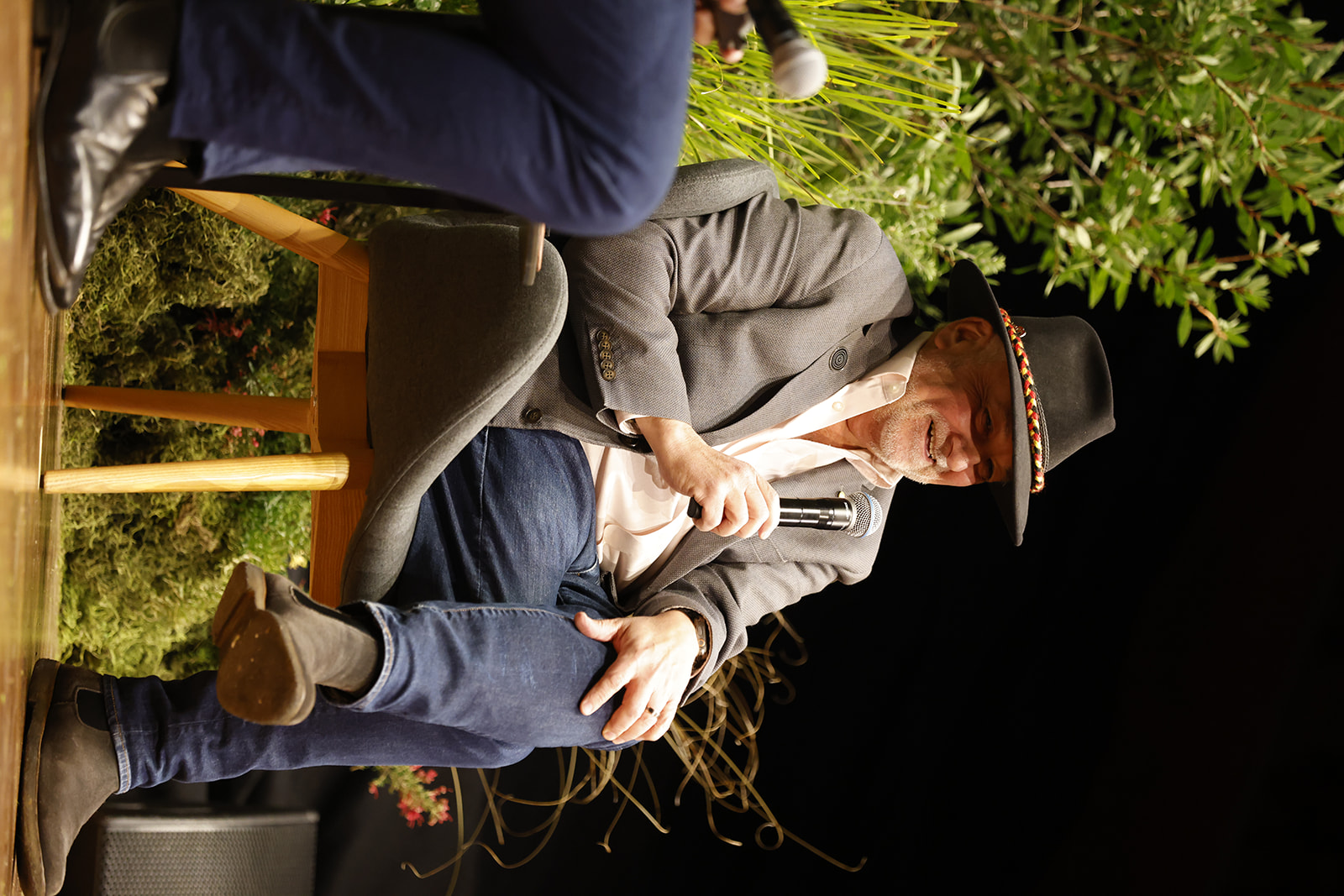The 2025 Australian Sustainable Finance Institute (ASFI) Summit spotlighted the untapped potential of First Nations participation in driving sustainable productivity. In a standout panel led by First Nations leaders, the event examined the critical role of First Nations people in redefining Australia's economic future.
Hosted on Gadigal Country at Sydney Town Hall on Wednesday, the event brought together industry leaders, investors, bankers and insurance providers to explore this year's theme, "Building on Strength, Seizing Opportunities". Among the opportunities spotlighted was the power of Aboriginal and/or Torres Strait Islander knowledge in shaping a more inclusive and productive economy, in a panel led by Professor Deen Sanders and Tyrone Glenbar.

But effective change must come from active engagement with First Nations voices, rather than out of social obligation or corporate responsibility:
"The First Nations' economy is growing at four and a half times faster than the rest of the economy, and we are the answer to productivity challenges. But the conversation needs to start from a radically different place than a pre-populated Gantt chart," said Professor Deen Sanders, a Worimi Giparr (cultural man) from mid North Coast NSW and ASFI panellist.
As a leading partner at Deloitte: Integrity, a law professor and owner of Indigenous leadership, economics and strategy consultancy Think.Know.Do, Professor Sanders has established himself as an expert voice within law, economics and leadership.
He believes that Indigenous knowledge and ways of business are the key to Australia's future economic success:
"40 per cent of the dollar stays in the hands of Australia, through the productivity and activities of most companies. 100 per cent of the dollar stays in our communities, in our businesses, because we employ our people, we employ our communities. We work with natural resources, we work in our spaces," he explained.
"So it's a radical difference in the way we understand money works. These are real measures of economic success."
But Professor Sanders believes that without meaningful engagement with First Nations communities, Australia will miss a critical opportunity to mitigate future economic risk:
"You've got to come and involve us in that conversation, not at the back end of it as a stakeholder, not as an invitation to your consultation," he said.
Professor Sanders also recognises the importance of Country when talking about sustainable finance:
"I can't help but think about how the conversation we are having is about sustainable finance. For us, it's always a conversation about Country."
Professor Sanders emphasises that First Nations' perspectives are crucial to the conversation:
"When we talk about Country, we're talking about not just something that is a thing, not an investable asset, but something that is our DNA. We've been trained in sustainable finance and sustainability practice for 3000 generations," said Professor Sanders.
"We have knowledge and ideas, and information to share with you about how you can change the future of this planet," he said.
Tyrone Glenbar - a recognised and supported Kabi Kabi Traditional Owner through his grandfather Bill Glenbar and KKPAC as well as ancestral ties to Wakka Wakka, Nughi of Moorgumpin and through his grandmother Wulugurukaba/Bindal, and ASFI's Executive Manager of First Nations and Finance - critiques First Nations inclusion within Australian finance and economics.
"Aboriginal and Torres Strait Islander people are often left behind in these projects within the capital building stages and most finance contexts," Mr Glenbar said.
Mr Glenbar emphasises that their inclusion has been brief and rudimentary, comparing First Nations inclusion to a second out of a 24-hour day. He urges a change in how First Nations' perspectives are valued in the conversation on sustainable finance:
"We are often the last ones to be consulted or brought in…But instead of being the last, we should be there at the forefront and in these decision-making rooms," Mr Glenbar said.
"We do know Country, and our greatest resource here is Country," he continued. "But the clock is going down really quickly for this relationship between us."
Looking towards practical solutions, Professor Sanders calls for Australia to redefine its vision of the future economy by adopting First Nations' knowledge systems:
"There are plenty of people who aren't in these types of rooms who are trying to think about other solutions. So you're in this room because you've understood there is something we need to do together to reimagine the models of finance, to reimagine models of investment, to reimagine our relationship with Country in the future," he said.
"One of those things is to reimagine our relationship with First Nations versions of economics."
"Everybody knows the tools they're using are not the right tools, but they're the tools we've got…We have tools that can expand thinking about economics, complex science, and understanding the relationship between systems."
While progress is still needed, Professor Sanders and Mr Glenbar remain steadfast in their belief in genuine collaboration as the path to a better future:
"I think you'll find that every single First Nations person in your group you work with is immensely optimistic about working with you…We are a welcoming people. It's just that the tools of welcome, the tools of relationship, haven't been made available," Professor Sanders said.
"We will transform the economy together…and we will continue to provide these spaces and invite everyone in," concluded Mr Glenbar.
As Australia reimagines its economic future, First Nations voices offer not only much-needed solutions but a different way of doing business - one grounded in responsibility, sustainability and community.



